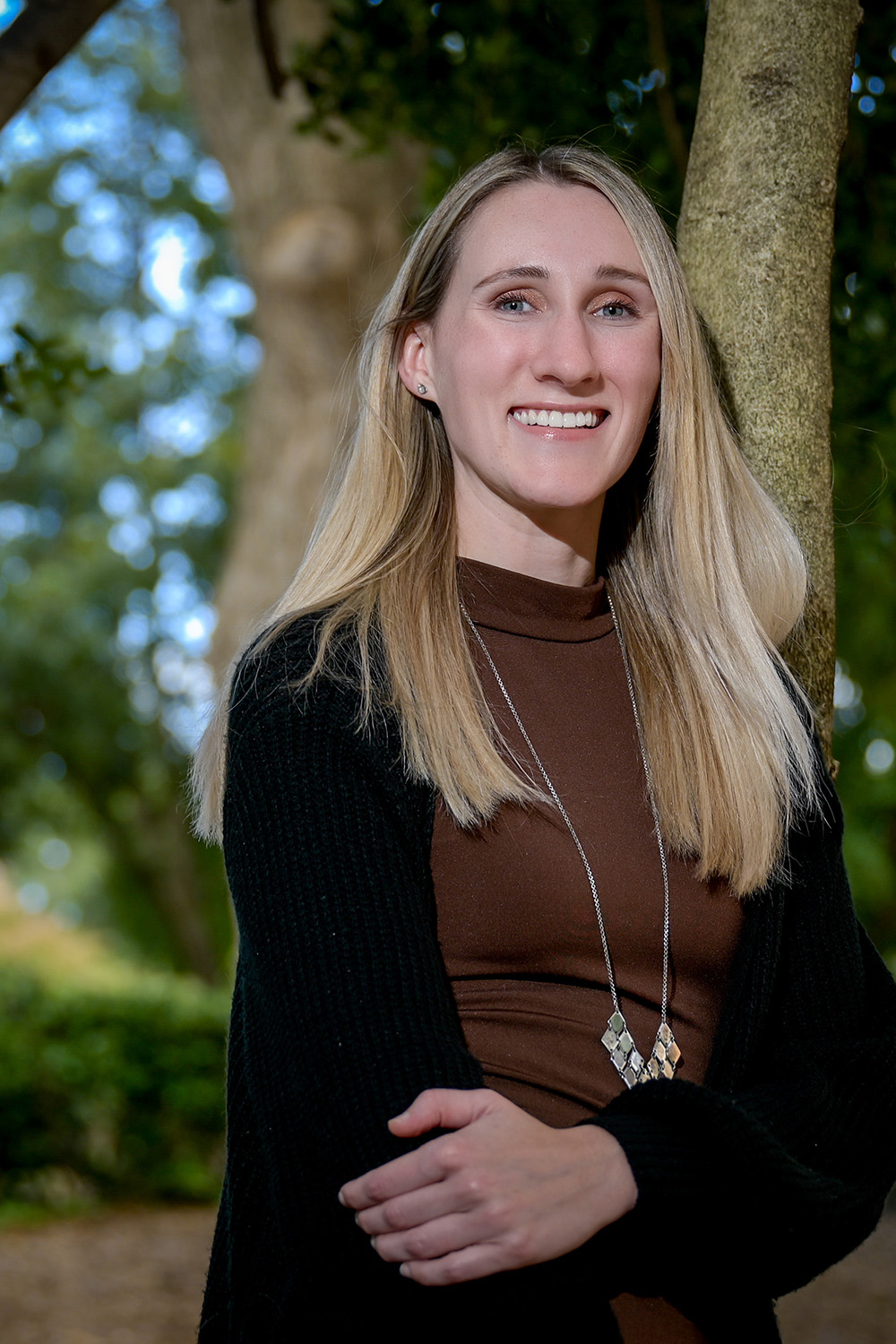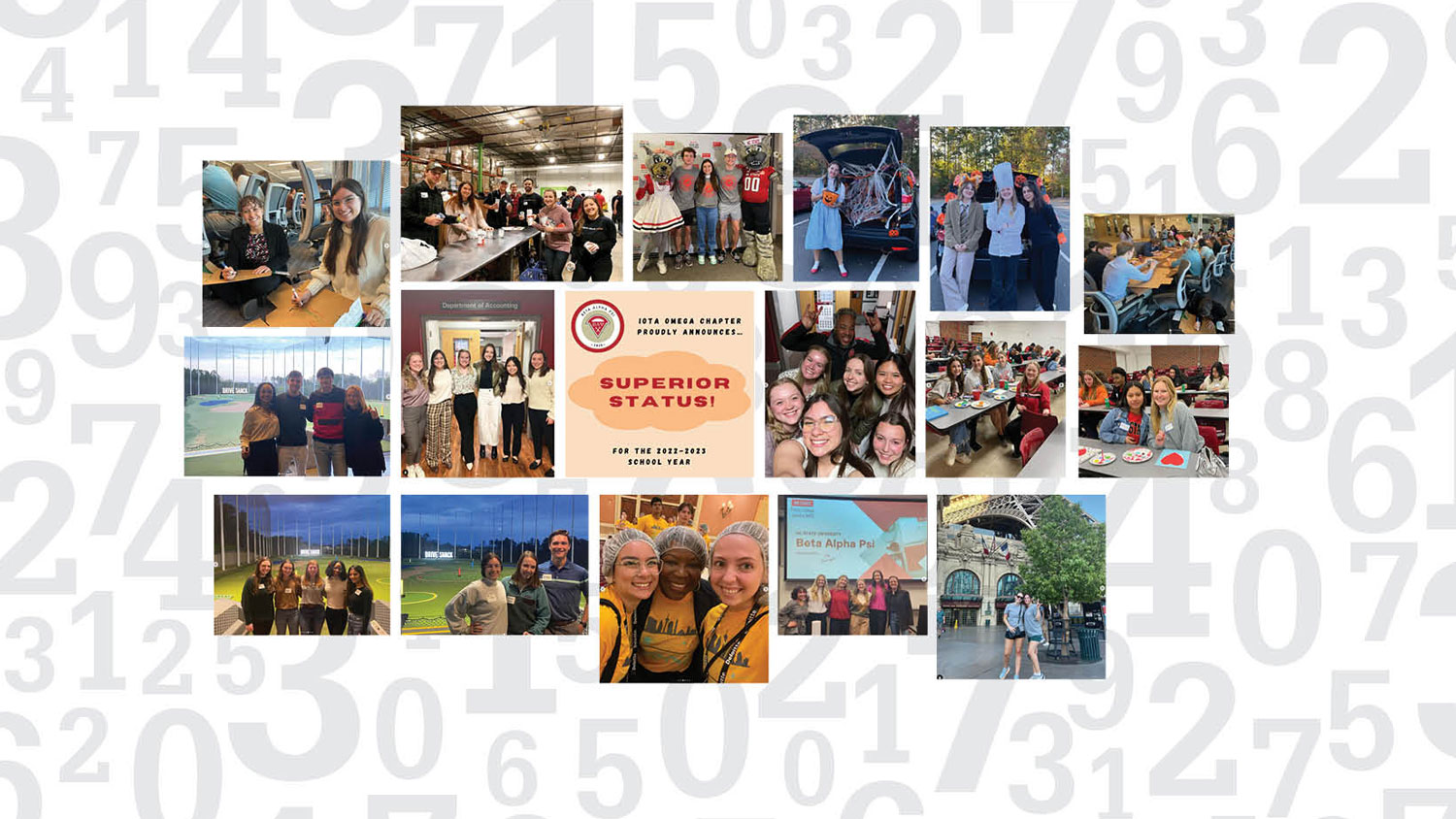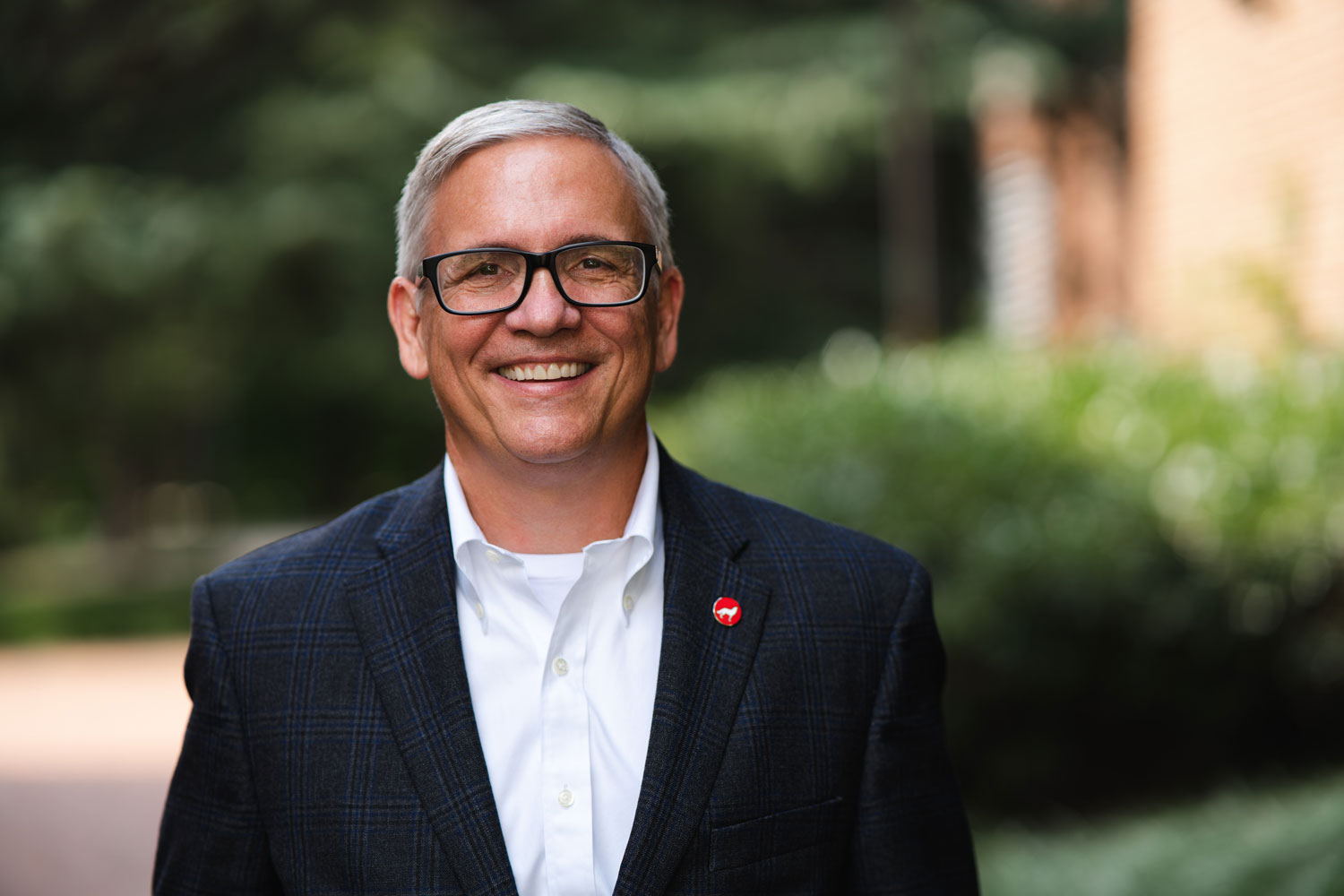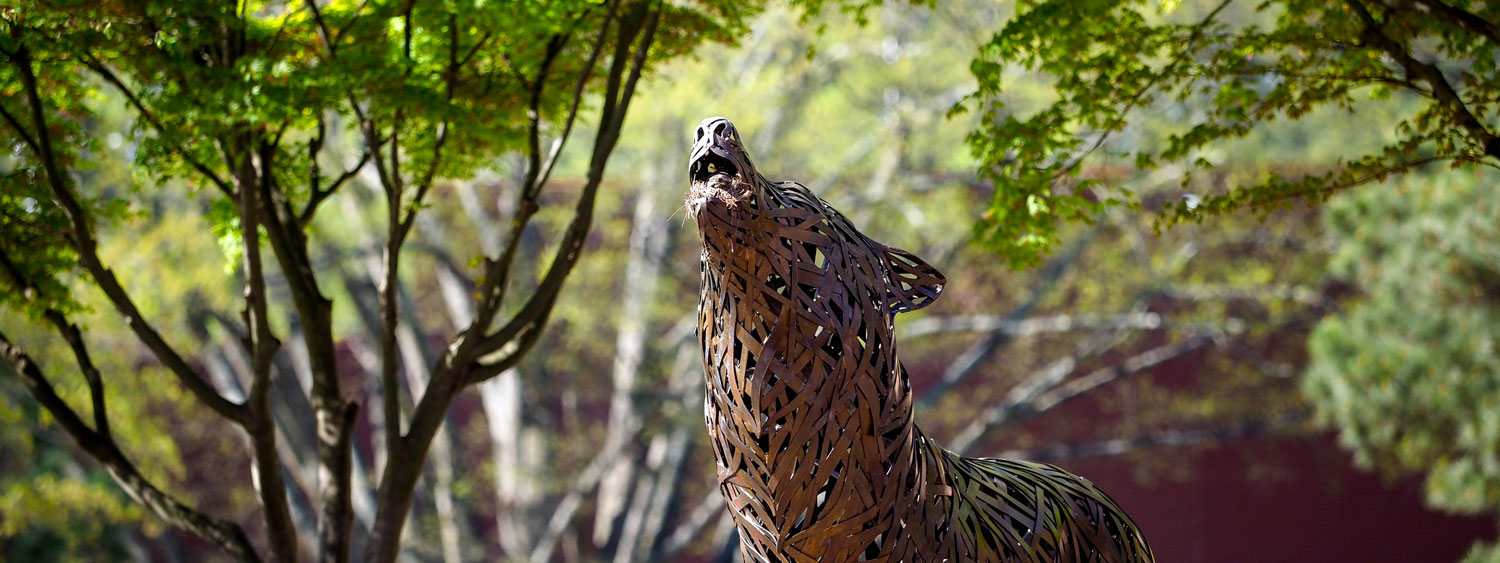
Embedded Counseling: Creating a Culture of Long-term Success at Poole College
With an office inside Nelson Hall, Brittney Yetter is readily available to talk with students about pressing concerns or simply to help them get acquainted with therapy.
By Miriam Antelis
Growing up, Brittney Yetter was known as the “good listener” of her friend group.
“My mom’s a nurse, and I wanted to go into a career where I help people, too,” she said. “I thought, ‘How could I use this existing characteristic of mine to help others?’”
She decided to become a licensed clinical mental health counselor, earning a master’s in counseling from the University of North Carolina at Greensboro in 2021. In March, Yetter started her position as a full-time embedded counselor in the Poole College of Management. But she’s no stranger to NC State. Before joining Poole College, she had been working as a temporary counselor at the Counseling Center since August 2021. When she heard about an opening for an embedded counselor at Poole College, she jumped at the opportunity.
The job doesn’t just allow me to hone in on a particular group of students, but also to consult with faculty and staff to better support all of the college’s students.
“The job doesn’t just allow me to hone in on a particular group of students, but also to consult with faculty and staff to better support all of the college’s students,” said Yetter. “That element of deeper connection and collaboration really appealed to me.”
Breaking Down Barriers and Stigmas
NC State’s embedded counseling service provides an on-site counselor in each of the university’s colleges. The goal of the initiative is to reduce the barriers to accessing mental health services as well as the stigma attached to seeking help. Embedded counselors offer free sessions — either during drop-in hours or scheduled appointments — right in the colleges’ buildings, eliminating the need for students to find time to make their way to the Counseling Center. Being embedded in a particular college also means that the counselors are attuned to the unique culture and specific needs of their college and its students.
It’s OK to ask for help — you don’t have to be perfect all the time.
“I do believe that having a counselor on-site will help reduce the stigma because we, as a college, are saying, ‘It’s OK to ask for help — you don’t have to be perfect all the time,’” said Frank Buckless, Stephen P. Zelnak Jr. Dean of Poole College.
Yetter is looking forward to helping Poole College students work through their stressors and challenges. She and Buckless have observed that the competitive nature of the field of business and management leads students to compare themselves to one another, which is amplified by social media use.
Oftentimes, all they see is other people’s successes and they start to wonder, ‘Do I belong here?’ And the answer is yes.
“We have great students who just want to excel,” said Buckless. “Oftentimes, all they see is other people’s successes and they start to wonder, ‘Do I belong here?’ And the answer is yes.
“We don’t talk enough about the obstacles people had to overcome to get to where they are, because the road to success is never perfect for any of us. It comes with ups and downs.”
Yetter is readily available to talk with students about pressing concerns or simply to help them get acquainted with therapy. She holds drop-in hours every Thursday from 1 p.m. to 3 p.m. in the Nelson Hall OUP Suite 2150. She also hopes to start a counseling group for Poole College students after conducting a deeper assessment of their needs.
We don’t talk enough about the obstacles people had to overcome to get to where they are, because the road to success is never perfect for any of us.
Fostering a Stronger College Culture
Yetter’s presence in Poole College will also bolster the faculty and staff’s ability to support students and build a stronger culture. She and Alyssa Elliot, an academic advisor and liaison for the CARES program at NC State’s Prevention Services, have been presenting to faculty in each department on recognizing symptoms of mental health distress, as well as providing resources for supporting students’ well-being.
“I was seeing stress with some of our faculty and staff, who were saying, ‘I want to do the right thing for our students, but I’m not an expert in this,’” said Buckless. “Having Yetter work closely with our faculty and staff, who are interacting daily with our students, helps them develop better approaches when it comes to addressing student needs. Yetter’s support will ultimately help with the mental health of our faculty and staff as well.”
Yetter’s support will ultimately help with the mental health of our faculty and staff as well.
Ultimately, Buckless, Yetter and the rest of Poole College’s faculty and staff want students to know that they take their success — in every aspect of their lives — seriously, and they’re open to feedback to create a culture where everyone can thrive.
“I believe that having Brittney on-site is going to build more trust among students that we do care and that we’re taking action,” said Buckless. “It’s important for us in leadership to understand the culture of our environment here within the college. Having an embedded counselor will help shorten the feedback loop so that we know if we are creating the right culture.”
I believe that having Brittney on-site is going to build more trust among students that we do care and that we’re taking action.
The faculty and staff also want Poole College students to know they’re not alone in their struggles.
“It’s common for students to feel like they are the only ones struggling with making friends, academic challenges or balancing everything on their plate. While each experience is unique to the individual, I want to normalize that certain feelings are common,” said Yetter. “People are more likely to only share their successes, which inadvertently can make others feel alone in their struggles. That’s why it’s so important to shift away from comparison and toward compassion in stopping the stigma.”
That’s why it’s so important to shift away from comparison and toward compassion in stopping the stigma.
“As a college, we’re committed to creating a culture and environment where you can strive for long-term success and impact,” Buckless says.


